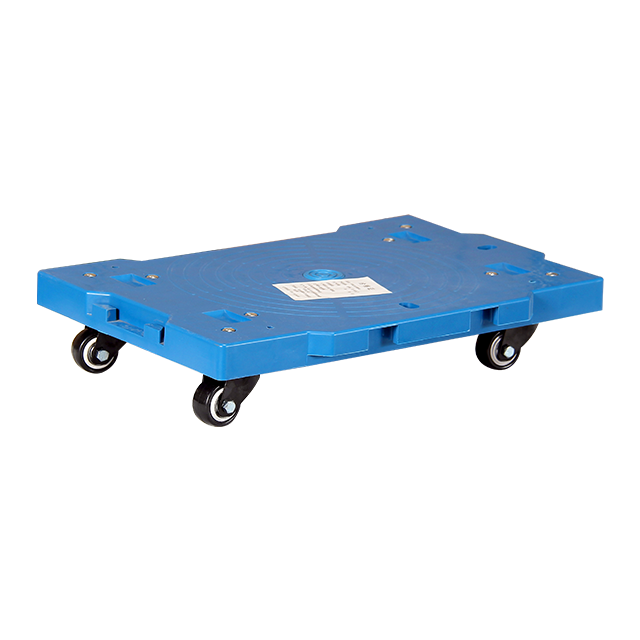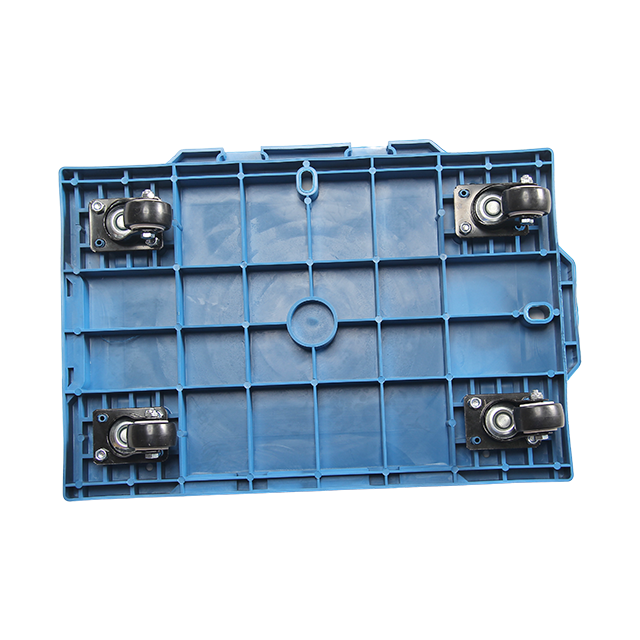English


Views: 0 Author: Site Editor Publish Time: 2025-07-30 Origin: Site










Plastic dolly wheels are a common feature on many types of equipment, from industrial carts to personal storage solutions. They provide mobility, ease of use, and durability in various environments. However, one common question arises when it comes to their maintenance: do plastic dolly wheels need to be greased?
In this article, we will explore the reasons why you might need to grease plastic dolly wheels, the benefits of doing so, and how to maintain them for optimal performance. Understanding the maintenance requirements for plastic dolly wheels can save time, effort, and money, ensuring that your equipment remains in top condition.
Introduction
What Are Plastic Dolly Wheels?
Do Plastic Dolly Wheels Need to Be Greased?
The Benefits of Greasing Dolly Wheels
How to Properly Grease Plastic Dolly Wheels
Common Problems With Plastic Dolly Wheels and Their Solutions
Conclusion
Frequently Asked Questions
Plastic dolly wheels are designed to help move heavy objects with minimal effort. These wheels are typically made from materials such as nylon, polypropylene, or polyethylene, known for their strength, resistance to wear, and low friction properties. Dolly wheels are commonly found in various applications, including:
Warehouse carts and storage units
Industrial equipment
Furniture movers
Shopping carts
These wheels provide a reliable solution for moving items in environments where noise reduction, corrosion resistance, and durability are important factors. However, plastic dolly wheels can face wear and tear over time, which raises the question of whether they require lubrication.
The simple answer to this question depends on several factors, including the type of plastic dolly wheel, the environment in which they are used, and the level of usage. Let's break it down:
Type of Plastic Material: Some plastics, like high-quality nylon or polyethylene, are designed to be low-maintenance and resist friction naturally. In these cases, greasing may not be necessary, but it can still help improve the smoothness of movement and prolong the lifespan of the wheels.
Usage Intensity: For high-usage environments, such as warehouses or factories, plastic dolly wheels may experience significant wear. Regular greasing can help reduce friction, which reduces the stress on the wheel material, preventing it from deteriorating too quickly.
Environment: Exposure to extreme conditions, such as high temperatures, moisture, or chemical exposure, may cause the wheels to wear faster. In these cases, lubrication can act as a protective barrier, preventing the material from degrading prematurely.
In conclusion, while not every plastic dolly wheel needs to be greased, it can offer benefits in terms of performance and longevity. Greasing helps reduce friction and protect the wheels from damage, especially when they are used extensively.
Greasing plastic dolly wheels provides several advantages, whether in light or heavy-duty environments. Here’s why you should consider greasing your plastic dolly wheels:
Reduced Friction: Lubrication significantly reduces friction between the wheel and the surface it moves on. This makes the wheels glide more smoothly, reducing the effort required to move heavy loads.
Extended Wheel Life: Regular greasing helps protect the wheel material from wear and tear. Without lubrication, friction can cause the wheel material to break down over time, leading to cracks, deformities, or flat spots.
Noise Reduction: Unlubricated wheels can be noisy when moving, particularly on hard surfaces. Greasing can reduce the noise by minimizing friction and allowing the wheels to turn smoothly and quietly.
Preventing Rust and Corrosion: While plastic itself doesn’t rust, metal components in the dolly, such as the axle or bearings, may. Lubricating these components helps prevent corrosion, ensuring the longevity of the entire dolly system.
Improved Performance: Greasing enhances the overall performance of the dolly, making it easier to maneuver, especially when carrying heavy loads. This improvement is crucial in environments where efficiency and ease of movement are essential.

Proper maintenance is key to maximizing the lifespan of your plastic dolly wheels. Follow these steps to grease your wheels effectively:
Choose the Right Lubricant: Select a lubricant suitable for plastic wheels. Silicone-based lubricants or PTFE sprays are often ideal for plastic surfaces. Avoid petroleum-based lubricants, as they can degrade the plastic material over time.
Clean the Wheels First: Before applying grease, make sure the wheels are clean. Remove any dirt, dust, or debris that may have accumulated on the surface. This prevents abrasives from causing additional wear.
Apply Lubricant to Bearings and Axles: Focus on lubricating the bearings and axle, as these are the components that typically suffer the most friction. Apply a small amount of lubricant to these parts to keep them moving smoothly.
Apply Lubricant to the Wheels: If necessary, lightly spray or apply grease to the plastic wheels themselves. A thin coat is enough to reduce friction without causing a mess.
Test the Movement: After greasing, test the wheels to ensure they rotate smoothly and quietly. If necessary, apply a small amount of additional grease.
While plastic dolly wheels are durable, they can still experience some common problems. Below are some of the typical issues and how to address them:
Wheel Wear and Tear: Over time, plastic dolly wheels can become worn or cracked due to constant friction. Regular greasing can prevent this, but if the wheels are already damaged, it may be time to replace them.
Sticking or Jammed Wheels: If your dolly wheels become stiff or jammed, it could be due to a build-up of dirt or debris. Clean the wheels thoroughly and apply a fresh coat of lubricant to restore smooth movement.
Corrosion of Metal Components: If the metal axle or bearings are corroded, the wheel’s movement will be restricted. Use a rust remover and replace any damaged metal components. Regular greasing will help prevent this from happening in the future.
Squeaky or Noisy Wheels: A squeaky wheel can be a sign of insufficient lubrication. Apply a silicone-based lubricant to reduce noise and improve smoothness.

In conclusion, plastic dolly wheels don’t necessarily need to be greased for every application, but lubrication can offer many benefits. Regular greasing helps reduce friction, extend the wheel's life, and improve overall performance. By maintaining the wheels with the right lubricant, you can ensure smooth and efficient operation, reducing the risk of damage and prolonging the life of your equipment.
How often should I grease my plastic dolly wheels?
It depends on the frequency of use. For heavy-duty applications, grease every 3-6 months. For light use, once a year should suffice.
Can I use regular motor oil to grease plastic dolly wheels?
No, it’s best to avoid using petroleum-based products. Use silicone-based or PTFE lubricants that are safe for plastics.
What happens if I don’t grease my plastic dolly wheels?
Without lubrication, the wheels may experience higher friction, leading to faster wear, reduced mobility, and possible damage to the wheel and axle.
Can I replace plastic dolly wheels if they become damaged?
Yes, if the wheels are cracked or excessively worn, replacing them is the best option. Make sure to select wheels that match the specifications of your dolly.
Langyi is dedicated to providing high-quality dolly for a wide range of industrial and personal applications. For any inquiries, contact us today!